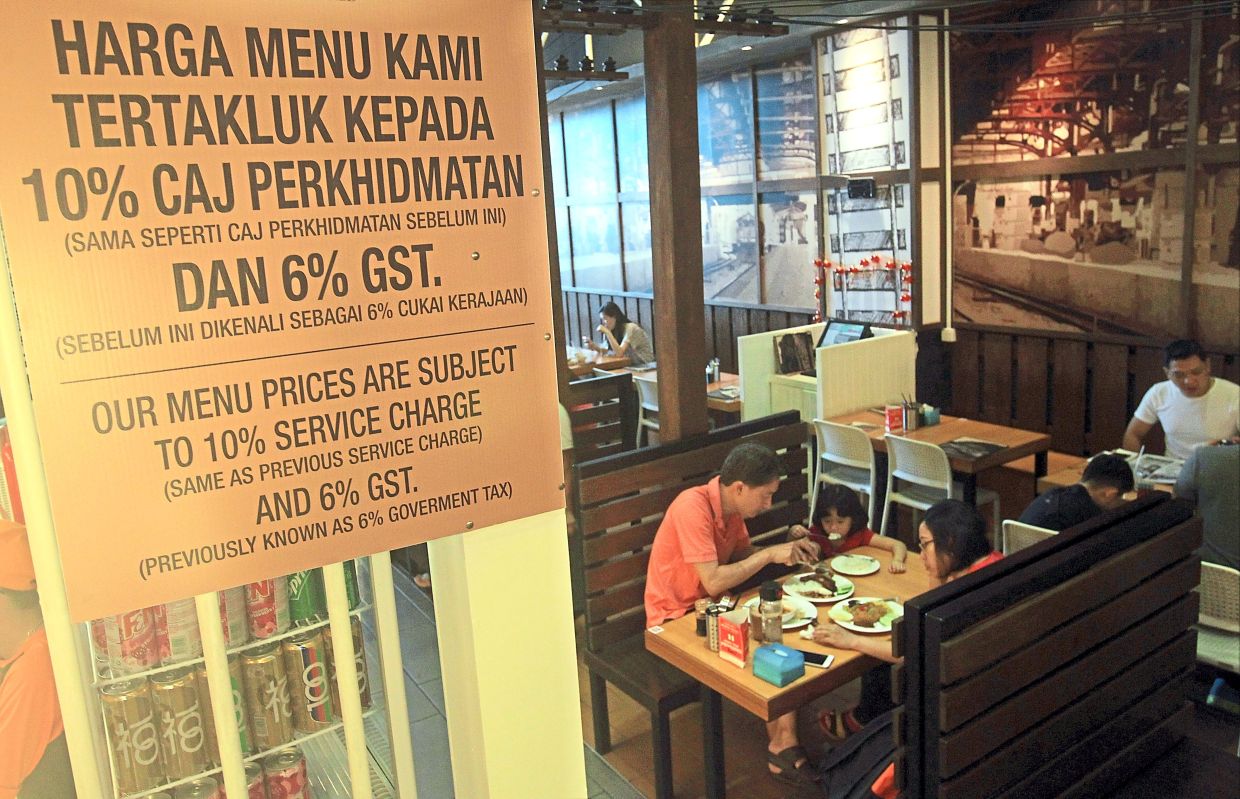IT will never be a popular move, but the Goods and Services Tax (GST) is necessary if Malaysia hopes to have a wider tax net to generate more revenue, given the increase in public expenditure.
From healthcare spending to security, the bills have all gone up, but not revenue.
Malaysia is no different from other countries. That’s why more than 170 countries have introduced GST or its equivalent. However, we have the distinction of not only introducing it, but killing it, too.
The irony is those who had opposed the GST by the Barisan Nasional government then are now leading the unity government.
Some Perikatan Nasional leaders, who were Barisan ministers then, had vehemently defended the GST.
Last week, Economy Minister Rafizi Ramli said the government was not ruling out reintroducing the GST, which was abolished in 2018.
In fact, in 2015, PKR launched an anti-GST signature campaign along with a series of rallies to protest the tax system.
In 2013, Tan Sri Muhyiddin Yassin accused the opposition of using the GST to shore up support, saying “there are almost 160 countries that have the GST, and this includes poorer countries. Only Malaysia has not implemented it and I think it is time that we roll out this system.”
But in 2018, after he was out of the government, Muhyiddin participated in a rally against the GST, which was introduced by then Prime Minister Datuk Seri Najib Tun Razak.
Now, Rafizi says the Government will first prioritise its strategy to widen the nation’s revenue base, while focusing on redeveloping and rolling out of the Capital Gains Tax, which is slated to be implemented in 2024.
He said the administration favours non-regressive methods rather than the GST when it comes to contributing to the government’s coffers.
He said although the GST was the most efficient and transparent tax system, its reintroduction will hurt poor households.

Unpopular measure: Economy Minister Rafizi Ramli recently said the government was not ruling out reintroducing the GST, which was abolished in 2018. — The Star
Respected former Treasury secretary general Tan Sri Sheriff Kassim said the GST may not be popular but “like antibiotics, when you want to protect your body system, you have no choice but to take the bitter pills.”
The GST is levied on all goods and services and therefore, no one is exempted, rich or poor, which is the government’s concern.
The best tax instrument to raise govt revenue and create local and international confidence in Malaysia as a financially stable country is undoubtedly the GST.
Against the backdrop of the rising cost of living, the timing of GST’s re-introduction could be questioned, but there will never be an ideal time for it to return.
What can and should be done is to compensate the poor in the form of an effective cash support system.
But for now, only a small percentage of Malaysians are shouldering the burden of paying the tax.
It has been reported that Malaysia only has slightly more than 1.3 million individual taxpayers from more than 33.5 million people, representing a mere 4% of the entire population.
“As the private sector is highly influenced by external factors, its growth can be erratic.
“The public sector must therefore play the role of engine driver for the economy. So, it needs the GST to be assured of financial strength to provide the locomotive power for leading the economy, thereby enabling it to pull up the private sector,” said Sheriff.
The truth is, Malaysians will ultimately benefit when government revenue is strong to maintain a high level of spending.
We all know the reasons behind re-introducing the GST, but illogical considerations will take precedence. The unity government may have a strong majority.
Never mind if there’s one short of a two-thirds majority now that Muda president and Muar MP Syed Saddiq Rahman has decided to join the opposition, but the introduction of the GST doesn’t require a two-thirds majority because it doesn’t involve constitutional considerations.
By right, this would be the best time since the unity government has the numbers and is resolutely strong.
But Malaysian minds have been poisoned by the race and religion narrative, where almost every issue is twisted and manipulated. Many social media messages which are clearly venomously fake are given attention, and worst of all, forwarded and shared despite being anonymously written.
So, truth is silent, or has been silenced, while lies have grown louder. Lawmakers know that bold decisions need to be made but prefer to be cautious, or more disturbingly, be populists to fend off criticism.
So, economists can champion the GST’s cause, but the politicians aren’t going to push it through, especially if they had criticised it previously.





